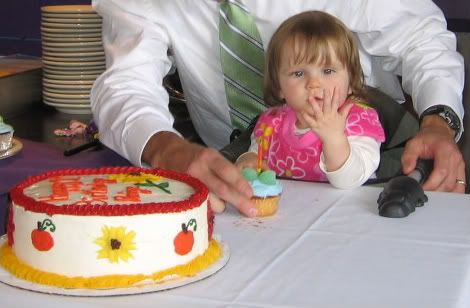After reading the latest issue of RW and the article on 'Second Chances' I wanted to jot down my thoughts on a 30-day marathon turnaround - specifically my 30-day turnaround running back-to-back marathons this past spring.
First, a little background on my '08 training cycle. My winter/spring training went really, really well. Most importantly, I didn't suffer any significant injuries (not until 3 weeks before Boston, but that was a minor calf strain and it healed quickly). I was taking time off from work to stay at home with Pdiddy (late January to early June) and had help from family and friends to get my 5X/week runs in so all went pretty well. I also had a strong base of core training/lifting from December to February (at least 2X per week each month - although it would have been nice to keep that consistency right through to late March). Compared to previous years, I felt like I dominated my normal racing circuit including the
Derry 16-Miler Boston Prep despite the snowy conditions (I think this race is more difficult than the actual marathon).
Along came April 21 and I was ready.
But ready for what? I knew I wanted to set a PR (weather permitting) - a sub 3:48, but in the dark recesses of my (self) competitive mind I was thinking how low could I go? I was pretty confident I could set the PR but had no clue about what pace my body could really handle and how much quicker I could or should be. The effort required for shorter races is so much easier to gauge because for me they're usually a byproduct of marathon training and the pain of racing just doesn't last that long. The last thing I wanted to do in Boston was to go out too quickly and gas out on the Newton hills or worse yet, seize up, injure myself and end up w/a DNF.
I wrote a pretty detailed report of my Boston '08 race on the KR site, but in summary, I finished in 3:37:25 and felt like I could have kept running. I ran everything in sub-9 mpm pace, even after having to stop once and stretch my calf out. As I stood on Boylston Street at the finish, I had this overwhelming feeling that I just didn't run hard enough - despite setting a monster PR. So, my elation was mixed with confusion, frustration and disappointment.
I'm not sure how many days it was after finishing Boston that I signed up for the Vermont City Marathon, but it was pretty quick and I instantly started to strategize my training regimen. I sought input from a few virtual running friends (PC) on how they prepare and rebound between races. Turns out that the training plan I drew up was a bit more aggressive than what they recommended. I took the advice to heart, modified some of my plan (other than the long runs) and set course.
In brief, the advice I was given was that my level of fitness wasn't going to suffer as long as I stayed active (running and XT) but I needed to give my body time to heal/recover. Additionally, I shouldn't be surprised that my energy reserves just aren't there late in the race. It was that last bit of information that got my attention.
In the 4 short weeks between Boston and VCM my mileage was as follows:
(Sun/M/T/W/Th/F/Sa)
W0 (26.2, 0, 0, 0, 4.5, 9.9, 0)
W1 (0, 6, 6, 0, 4, 20, 0)
W2 (4, 6.2, 8.4, 4, 0, 12, 0)
W3 (0, 6.4, 5.7, 0, 2.5, 9.8)
W4 (3.8, 0, 4.4, 3.9, 0, 0, 26.2)
For some reason, my W4 mileage was fast - all 3 runs were around an 8:10mpm-ish pace. I think I was pressed for time on every run so I opted to do a week of speed. I figured it was only a total of 10 miles and wouldn't tax my system any more than it already had been. My 4-week stint also included at least one fast workout per week as a tempo run. I also wasn't able to hit the gym during this time for any cross training - just no time w/stuff I had going on. So, the thought of being too one dimensional this late in the game weighed heavily on me.
Other than the inquiry I mention above, I hadn't done any research on how to rebound or get ready for a race on shortened recovery. I literally had no clue what I was doing. I just trusted my gut and my level of fitness. I also had Mt Washington to keep in mind - that race was also only 4 weeks after VCM. Deep down, I knew I should have run easier miles in my 4-week plan, reduce the speed work and get more cross training in....I guess my vision was clouded by visions of a sub 3:30 or something.
(dream on)VCM arrived and I felt light, lean and fresh although before the race started, I could tell I didn't have the deep-down energy reserves that I'd need towards the end of the race. Those rib-sticking glycogen molecules (aka, fat) were nowhere to be found. I opted for a fast start to try and beat the heat and laid down a 1:43:11 1/2 marathon time (only 4 minutes slower than my PR). I also ran a 20-mile PR (I just noticed that) so I knew I was kicking. At the 22-mile mark, I was still on line to run a PR - I hit the mile mark at 2:57:54 - 2 minutes ahead of my Boston pace...but I was feeling much worse than a month prior. This is where the late in the race energy reserves would have been nice. No such luck.
All told, I was exhausted at the finish, ended up walking quite a bit in the last 3 miles and crossed the line with a 3:37:42. I blamed the non-PR result on a rock that found it's way into my shoe at mile 20 but in reality it was definitely the lack of late-race fuel (despite Gu & Beans). I guess that advice was spot on.
So, where did I go wrong? Or, did I go wrong? Would I do it again? Would I change what I did? Would I recommend a quick turnaround marathon for anyone/everyone?
First, don't let that RW article scare you. I know
I couldn't have rebounded after my first marathon whether it was one month, three months or whatever. I was mentally devastated after running my first. I swore off running; well first I swore
at it, about it and then swore it off. It took a good 3+ months for the mental anguish to wear off (and 5-10 lbs) to realize running
ain't so bad. In the following years (post 2003) I think I was ready to take on another full mary but life happened, baseball season came or I was injured and needed to recover.
This year I was let down after finishing Boston because I knew I didn't run hard enough. It's so tough to gauge how hard/fast to go out because a marathon is so daunting. A mistake in mile 1-5 can be so costly from mile 15 on.
Where did I go wrong? I don't know that I went wrong. Maybe running that 20-miler 2 weeks after Boston wasn't such a great idea but at the time I felt fresh. I took that particular run really slow and wanted to 'harden' up a little more before taking on Vermont. I think the only place I went wrong was not keeping up with my cross-training and not carbo-loading well enough in advance of VCM. I typically don't "carbo-load" in it's traditional sense. I don't need the extra weight to get by. Maybe I needed it for this effort.
Would I do it again? In a New York flipping minute! If I'm in
that kind of shape or better, I wouldn't waste the opportunity. Additionally, I'd also encourage others to take advantage of their fitness level, if they're in a groove, are injury-free and feel physically able to give it another shot on quick turnaround. But patience is critical. I have learned a hell of a lot about my running self over the past 6 years. And I think my body has learned a lot over that same time period - how to handle the lactic acid, long miles, constant pounding, etc.
A few key phrases from the RW article that stuck w/me - things we all need to hear in repeition so they not only hit, but stay home.
"Training your expectations should also be a key part of preparation."I set multiple goals for almost every race - from easy to near impossible.
"...redeem your racing hopes in the very same season."There's always hope.
"It can be frustrating not to run-especially when you've got lots of pent-up energy-but the rest will pay off. "This is just so difficult to do.
"you still won't be able to control the weather on race day, and so many other factors that could impact on your performance."So control the things you can - get a good night sleep, eat well, train well and hydrate well. Don't let the weathermen get you down.
And about those self-portrait speedo pix???
You're more likely to see snow in the Bahamas.
Sorry this was so long








